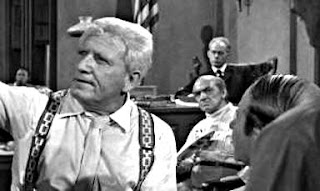Bill Knight column for Thurs., Fri., or Sat., April 7, 8 or 9
A guy in his 60s talks about turning library trash into flea-market treasure by retrieving hundreds of books discarded into dumpsters during remodeling – or some other conversion from traditional libraries to public computer labs where teens watch YouTube videos.
The move from print to digital is more than just switching from hardback books to Kindles, Nooks or tablets. The drive from shelves of classics or even bestsellers to web access or online resources is a symptom of technology killing culture. Society gains – and loses.
Technology has given civilization many benefits, no doubt, from communications and convenience to medical breakthroughs and scientific advances. But no technology is neutral. Its power can be used to dominate individuals and society, and increased power doesn’t necessarily mean increased progress.
In media, the conversion to technology can mean a loss of tangibility, of seeing images on photos and films or text on paper, touching pages and sheet music, smelling the musty marvel of bound volumes, hearing the scratchy charms of decades-old discs of bluesmen, orchestras or poets recorded in boarding houses or theaters now shuttered, reading old letters or just bantering with friends – or foes.
As computer users know, a hard-drive crash or new operating system can lose documents or pictures: poof. Small-town libraries, museums or historical societies look at boxes of old newspapers or postcards and wonder whether web sites or Facebook posts will suffice enough that shelves can be cleared.
However, some places’ pitching such “retro” media, we all can lose books, music, movies and our past.
“In case you were wondering, there were 129 million books in the world as of 2010,” wrote cartoonist and author Ted Rall (“After We Kill You, We Will Welcome You Back as Honored Guests: Unembedded in Afghanistan,” and the new graphic biography “Bernie”).
“Subscribe to Kindle ‘Unlimited,’ then, and you've got access to less than 0.5 percent of the world's books,” he said.
Worse, technology has unleashed untold numbers of hacks, thefts and cyberattacks that cause some to fret about systems ranging from air traffic control systems to automobiles. Journalist and author Ted Koppel in his book “Lights Out: A Cyberattack, A Nation Unprepared, Surviving the Aftermath” reports on the vulnerability of cyberspace, from personal privacy to day-to-day essentials.
“So many of our transactions are now conducted in cyberspace that we have developed dependencies we could not even have imagined a generation ago,” Koppel wrote. “To be dependent is to be vulnerable.
“There may not be a more productive target than one of our electric power grids,” he continued. “There are three power grids that generate and distribute electricity throughout the United States, and taking down all or any part of a grid would scatter millions of Americans in a desperate search for light, while those unable to travel would tumble back into something approximating the mid-19th century.”
Of course, it would be foolish to abandon our smartphones and all technology for “simpler” times that may have had some advantages but also had no indoor plumbing, antibiotics or modern transportation. Nevertheless, it seems past time to appreciate the tradeoffs at stake.
In the play “Inherit the Wind” and its film and stage adaptations and revivals, Henry Drummond – the attorney representing the science teacher on trial for teaching evolution – summarizes. “Progress has never been a bargain,” he says, in Jerome Lawrence and Robert Edwin Lee’s script. “You have to pay for it. Sometimes I think there's a man who sits behind a counter and says, ‘Alright, you can have a telephone but you lose privacy and the charm of distance. Madam, you may vote but at a price. You lose the right to retreat behind the powder puff or your petticoat. Mister, you may conquer the air but the birds will lose their wonder and the clouds will smell of gasoline’.”
If there are sanctuaries from the outbreak of unhealthy dependence on technology, they may be the emergence of “Little Free Libraries” where people share books, or the vanishing value of hand-written notes, or face-to-face conversation.
[PICTURED: Spencer Tracy from Inherit the Wind.]


No comments:
Post a Comment
Note: Only a member of this blog may post a comment.